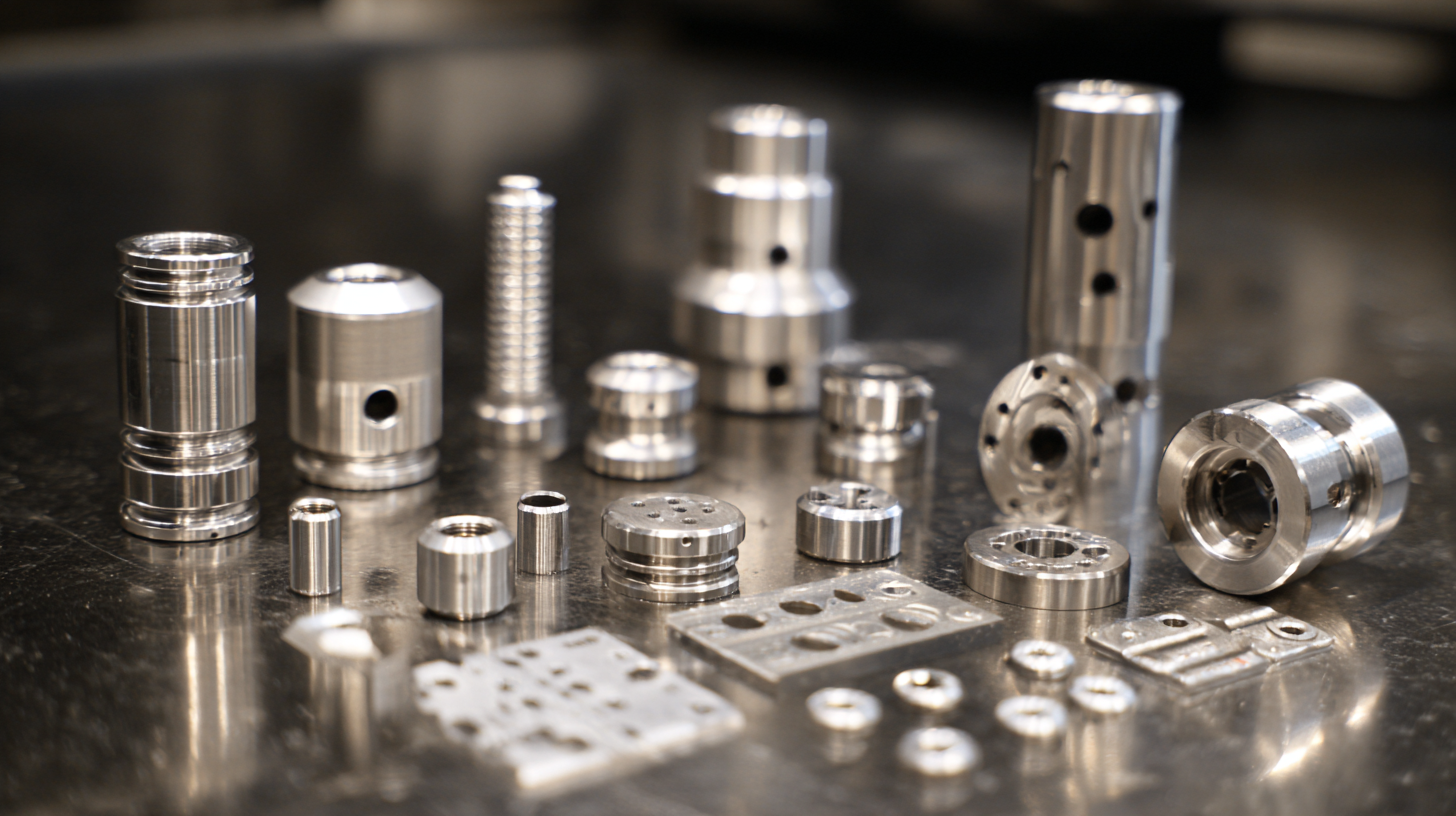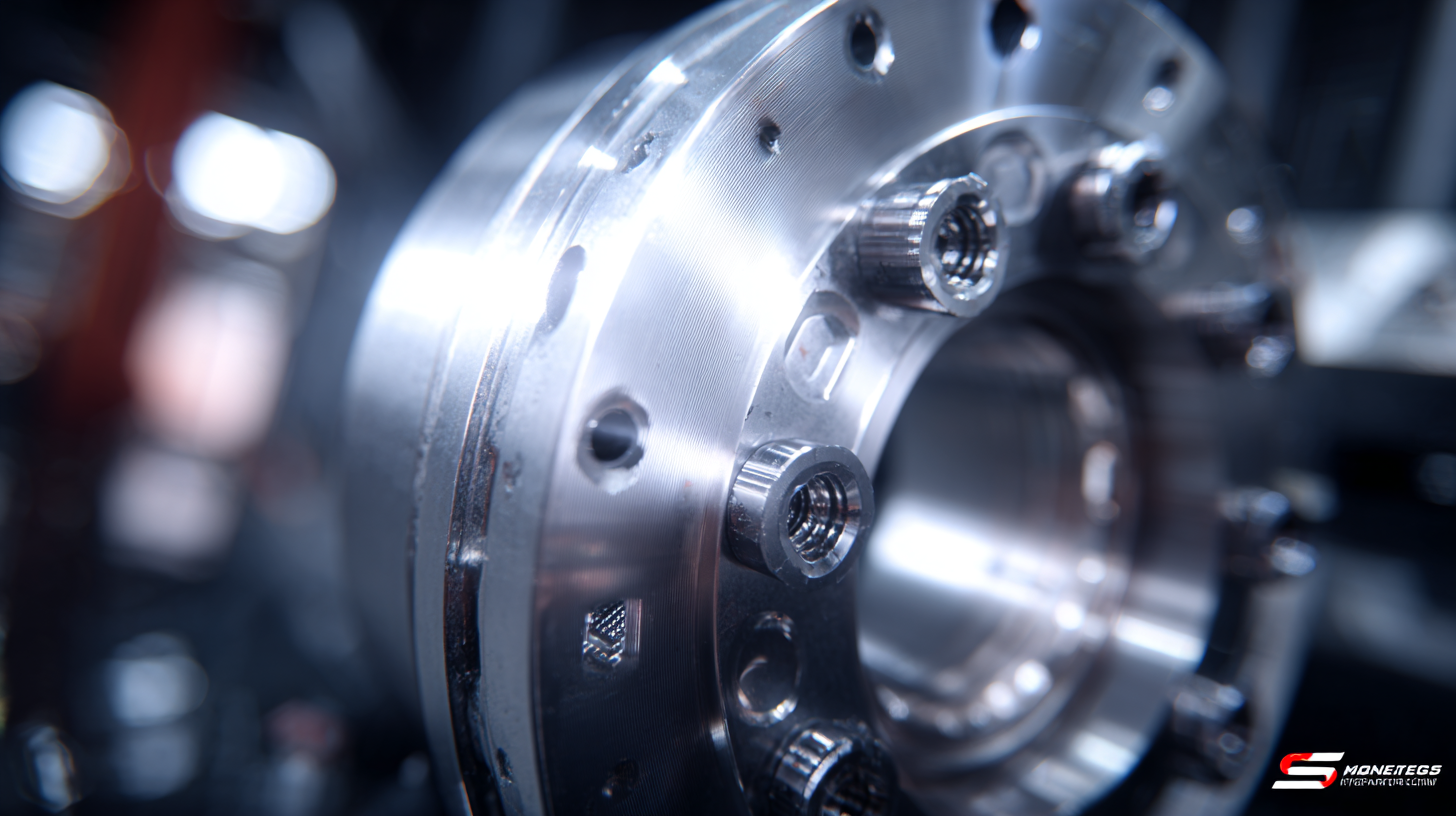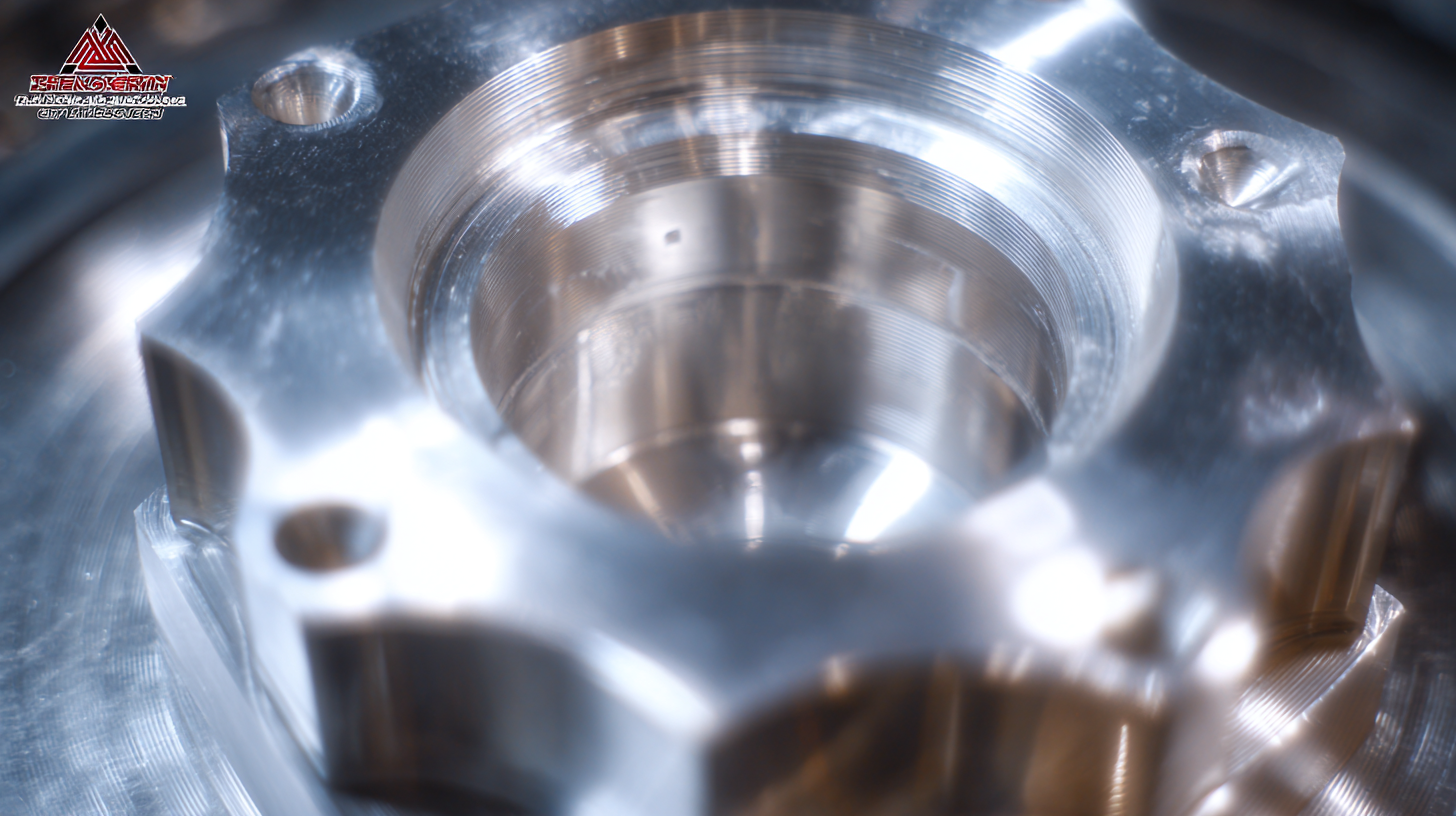In recent years, the demand for machined aluminum parts has surged dramatically, a trend underscored by industry reports indicating that the global aluminum machining market is projected to reach USD 96 billion by 2025, growing at a CAGR of 5.8%. This remarkable growth can be attributed to the unparalleled versatility and lightweight properties of aluminum, making it an ideal material for various applications across sectors such as aerospace, automotive, and consumer electronics.

China's manufacturing prowess plays a pivotal role in this landscape, providing high-quality machined aluminum parts that meet stringent international standards. As industries increasingly seek solutions that blend durability with efficiency, the importance of superior machining processes cannot be overstated. Exploring the versatility of machined aluminum parts not only highlights their functional benefits but also emphasizes their critical role in advancing technological innovation and sustainability across global markets.
When considering the advantages of machined aluminum parts over other materials in manufacturing, it's essential to recognize their remarkable versatility. Aluminum is lightweight yet incredibly strong, making it ideal for a wide array of applications, from aerospace components to intricate automotive parts. This unique combination of properties allows manufacturers to design products that are both efficient and durable, which is a significant advantage in an era that demands high performance and low weight.

Another key benefit of machined aluminum is its resistance to corrosion, which outperforms many other materials. This quality ensures the longevity of components even in harsh environments, reducing maintenance costs and the frequency of replacements. Furthermore, aluminum machining processes allow for precise tolerances and intricate designs, resulting in superior surface finishes and dimensional accuracy. As industries continue to embrace advanced manufacturing technologies, the role of machined aluminum parts in achieving innovation and quality will only grow, setting new standards across multiple sectors.
Machined aluminum parts are increasingly vital across a variety of industries due to their unique properties, including lightweight strength, durability, and corrosion resistance. Key sectors such as aerospace, automotive, medical, and electronics are leveraging these advantages. In the aerospace industry, for instance, precision-engineered aluminum components reduce weight, enhancing fuel efficiency while maintaining structural integrity. Similarly, the automotive sector adopts machined aluminum parts for parts like engine blocks and wheels, aiming for performance improvements and fuel savings.
When selecting machined aluminum parts for your projects, consider the following tips. First, focus on understanding the specific requirements of your application, including load-bearing capacities and environmental conditions. This knowledge will guide you in choosing the right alloy and machining process. Second, partner with a reliable supplier who can provide tailored solutions and maintain rigorous quality standards. Engaging with experienced manufacturers ensures your components meet the precise specifications necessary for critical applications.
Moreover, staying updated on the latest machining technologies can significantly enhance production efficiency and cost-effectiveness. Techniques such as CNC machining and additive manufacturing are revolutionizing how components are produced. By implementing these modern practices, industries can optimize their production lines, reduce waste, and ultimately improve the performance of machined aluminum parts.
Precision machining plays a crucial role in enhancing the performance of machined aluminum parts across various industries. By employing advanced technologies and tools, manufacturers can achieve exceptional levels of accuracy and detail in their products. This precision ensures that each component fits and functions perfectly within its assembly, leading to improved efficiency and longevity. For instance, in the aerospace sector, where every gram counts, precision machining enables the creation of lightweight yet robust parts that meet stringent safety standards without compromising performance.
Moreover, the versatility of machined aluminum parts allows them to be tailored for specific applications, from automotive components to intricate medical devices. The ability to customize shapes, sizes, and tolerances means that precision machining can meet the unique demands of each application. This adaptability not only enhances the overall functionality of the final products but also fosters innovation, as engineers can design parts that push the boundaries of what’s possible in their respective fields. As technology advances, the role of precision machining in optimizing product performance will continue to expand, further solidifying its importance in modern manufacturing.
When assessing the cost-effectiveness of machined aluminum solutions, it's essential to examine market trends that showcase their growing popularity across various industries. The lightweight nature and strength of aluminum make it an ideal choice for sectors ranging from aerospace to automotive. As manufacturers increasingly focus on optimizing production costs while maintaining quality, machined aluminum parts present an advantageous solution. By leveraging advanced machining technology, companies can produce high-precision components at competitive prices, thus driving down overall project expenses.
Tip: When considering machined aluminum solutions for your projects, always analyze the total cost of ownership, which includes not just the initial purchase price but also long-term maintenance and operational efficiency.
Furthermore, the rise of sustainable practices in manufacturing has only enhanced the appeal of aluminum. Its recyclability and lower environmental impact match the values of many modern businesses, making it a smart investment. As consumer preferences shift towards eco-friendly products, companies that incorporate machined aluminum components can capitalize on this trend while optimizing their production processes.
Tip: Stay updated with market trends by subscribing to industry newsletters or joining professional forums; this can provide insights into the latest advancements in machining technology and cost-saving techniques.

Sustainability in machined aluminum production is increasingly becoming a focal point for manufacturers and consumers alike. As industries strive to reduce their carbon footprint, the aluminum sector has made significant strides in adopting eco-friendly practices. Innovations in recycling processes have allowed for a high percentage of aluminum to be reused, minimizing waste and decreasing the need for raw material extraction. These advancements not only help the environment but also drive down production costs, making sustainable machined aluminum parts more accessible to a broader range of applications.
When considering machined aluminum parts, it's crucial to prioritize suppliers who adhere to sustainable practices. Look for companies that utilize energy-efficient machinery and renewable energy sources in their production processes. Another important tip is to seek out producers that have robust recycling programs in place; this ensures that the aluminum will be processed responsibly at the end of its life cycle. Finally, consider the entire lifecycle of the product, evaluating not only its durability and performance but also its environmental impact throughout its use and eventual disposal or recycling.
| Application | Machined Aluminum Part Type | Sustainability Benefit | Innovation in Production |
|---|---|---|---|
| Aerospace | Structural Components | Lightweight, energy-efficient operations | Advanced machining techniques for precision |
| Automotive | Engine Parts | Reduced fuel consumption | Use of recycled aluminum materials |
| Electronics | Heat Sinks | Improved thermal management | Innovative cooling designs |
| Military | Protective Casings | Enhanced durability and safety | Lightweight armor technologies |
| Medical | Surgical Instruments | Biocompatible and easy to sterilize | Precision engineering for safety |
